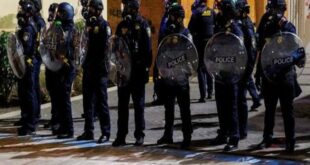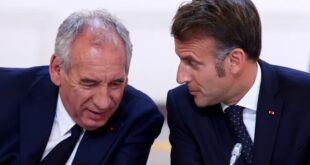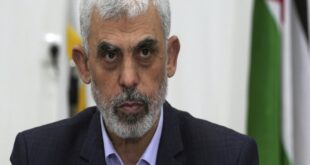
Periods of tension with North Korea come and go, but the situation on the Korean peninsula right now is the most volatile it has been in five years and it looks likely to get worse.
Over the past month the North has fired a missile over Japan, forcing residents to seek shelter; a hostile and provocative act. It has launched several other ballistic missiles, flown warplanes close to its border with South Korea and fired hundreds of shells of artillery into the sea, which have landed in a military buffer zone, created by the two Koreas in 2018 to keep peace. The two countries are technically still at war.
On Monday a North Korean merchant ship crossed the countries’ sea border, causing both sides to fire warning shots. South Korea says the incursion was intentional.
So, what is Kim Jong-un up to? There are three reasons North Korea tends to launch missiles – to test and improve its weapons technology, to send a political message to the world (primarily the US), and to impress its people at home and shore up loyalty to the regime.
It can be hard to decipher which of these ends Pyongyang’s actions serve, but this time Mr Kim has been explicit. State media has reported several times that the recent launches and drills are in response to military exercises being run by the US, South Korea and Japan. The North has blamed its enemies for escalating tensions and says its launches are a clear warning they should stop.
Washington, Seoul and Tokyo have been holding large-scale military exercises, separately and together, for the past two months, to show they are ready for a North Korean nuclear attack. There is little doubt these have antagonised Mr Kim, who has always viewed such exercises as his enemies rehearsing for an invasion. The reason North Korea started developing nuclear weapons in the first place was to stop itself from being invaded.
But there is a less explicit reason he could be upping the pressure now. Some believe may be preparing the ground for a more provocative test – the detonation of a nuclear weapon for the first time in five years, or even a small-scale attack on South Korea.
Last year he laid out a five-year plan, detailing all the new weapons he planned to develop. It included smaller battlefield nuclear bombs and the short-range missiles to carry them. The recent tests are evidence Mr Kim is not only working his way through this weapons wish list, but that he is training his troops to use them. He used some of the recent drills, he said, to simulate a nuclear attack on South Korea.
Now Mr Kim needs attention. He needs the world to notice the progress he has made, if he is one day to get harsh international sanctions on his country lifted. Sanctions haven’t stopped North Korea developing weapons, as they were designed to, but they are hurting its economy.
Talks aimed at reducing those sanctions have long stalled and North Korea is slipping down the global agenda. The world is far more concerned with the war in Ukraine, and the rise of an authoritarian China. President Biden’s position is that sanctions on North Korea can only be eased when it agrees to give up all its nuclear weapons.
In the meantime, Washington and Seoul have agreed to strengthen their defence of the Peninsula by holding the military exercises Pyongyang hates so much, and responding to its provocations with force. Following the North’s latest round of missile launches and drills, South Korea sent up warplanes and shot artillery of its own.
If Mr Kim is to get the US to negotiate on terms more favourable to him, he must prove how dangerous his country has become. Last month he declared North Korea to be a nuclear weapons state, a position he said was irreversible.
We should be worried about how assertive it seems to have become, said Kim Jong-dae, a former advisor in South Korea’s Defence Ministry. He pointed out how in the past North Korea has waited until US forces have finished their military exercises before retaliating. This time they fired artillery into the sea while exercises were ongoing.
« We have never seen this audacity and aggression before, it is different. It is the North acting like a nuclear state, » he said.
The US and South Korean governments believe preparations for North Korea’s seventh nuclear weapon test are complete and the North is waiting for the opportune political moment to act. An attractive window is opening, with China’s Communist Party Conference now over and the US midterm elections approaching.
Meanwhile South Korea is in the midst of yet another round of war games, with the US scheduled to join in. These may well provide Kim Jong-un with the pretext he has been waiting for.

World Opinions – BBC News




 World Opinions Débats De Société, Questions, Opinions et Tribunes.. La Voix Des Sans-Voix | Alternative Média
World Opinions Débats De Société, Questions, Opinions et Tribunes.. La Voix Des Sans-Voix | Alternative Média




